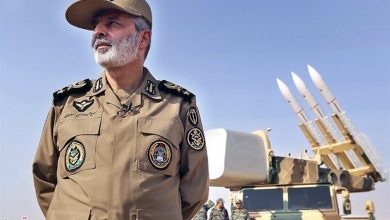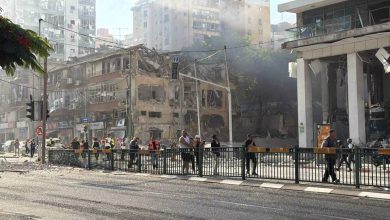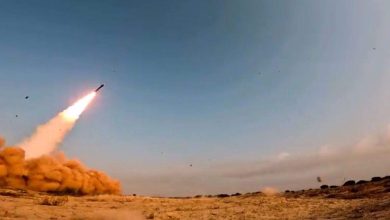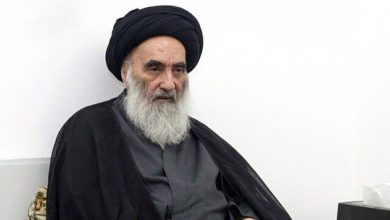Madeleine Emerges as Leading Advocate for Gaza as Western Nations Remain Silent
In a situation where leaders in the West have largely stayed silent regarding the severe actions attributed to the Zionist regime, the vessel "Madeleine" has emerged as a symbol and voice for the beleaguered population of Gaza.
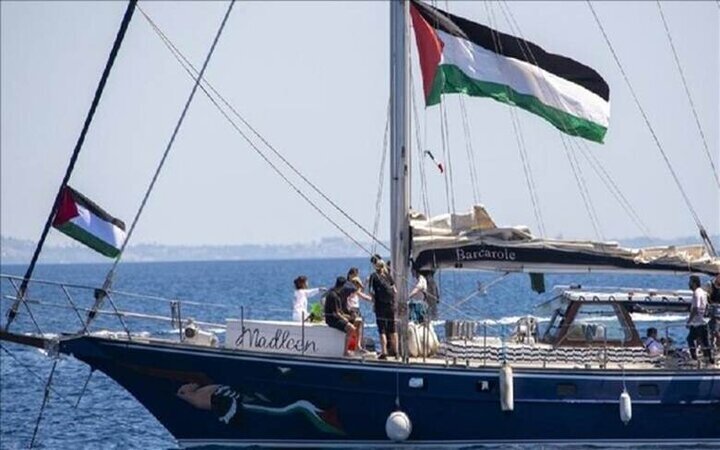
In an era where political figures remain silent amid the ongoing normalization of Israel’s controversial actions, the vessel “Madeleine” is amplifying the voices of Gaza’s impoverished population. This act aims to galvanize the global conscience into acknowledging and responding to the humanitarian crisis unfolding in the region.
The actions of the Israeli government, currently enforcing a blockade on the Gaza Strip and allegedly leveraging starvation as a political strategy, have sparked global condemnation. This has led to the launch of a tangible international initiative known as the “Freedom Flotilla,” aimed at addressing the ongoing humanitarian crisis.
A vessel with 12 volunteers dedicated to peace and human rights, hailing from a mix of European and international backgrounds, has embarked on a voyage to Gaza in an effort to penetrate the blockade surrounding the area. Notable individuals on board include Swedish environmental advocate Greta Thunberg, Irish actor Liam Cunningham, Palestinian human rights activist and European Parliament member Rima Hassan, along with various representatives and civil society activists from France, Germany, the Netherlands, Spain, Brazil, and Turkey.
“The Madeleine of the Freedom Flotilla” has emerged as a powerful emblem of worldwide dissent against the international community’s inaction regarding war crimes perpetrated by the Zionist regime against Palestinians in Gaza. The activists involved in this peace initiative confront the perils of maritime travel and the potential threat of assault, courageously risking their lives to amplify the voices of Gaza’s oppressed citizens on a global scale.
In a declaration by the “The Freedom Flotilla Coalition,” it was conveyed that the vessel Madeleine is transporting essential humanitarian aid, including formula milk, medical supplies, and various relief goods. The ship aims to access Palestinian territorial waters via European international waters, an operation that adheres entirely to international law.
The statement cautions that any interference or assault on this peaceful mission will be regarded as a deliberate and illegal act against civilians.
According to the outlined plan, the upcoming voyage is expected to span approximately a week. However, given Israel’s history of intercepting aid vessels in international waters, the ship Madeleine faces potential risks of seizure or attack. A recent incident involved the vessel Al-Dhamir, which was struck by an Israeli drone on May 2, resulting in a fire that prevented its arrival in Gaza.
Madeleine Ship’s Five Crucial Messages for the World
In the face of an unparalleled humanitarian crisis affecting the Palestinian people in Gaza, a global surge of awareness has taken hold across nations, activists, and public entities. The Madeleine ship has become a symbol of protest against the violence, acts of genocide, and ongoing human rights abuses attributed to the Zionist regime. This initiative represents a fervent appeal from the depths of awakened consciences, demonstrating that the world, while governments may remain silent, still harbors individuals who refuse to turn a blind eye to the suffering of others.
The flotilla and its accompanying vessels are delivering an unequivocal message to the global community: “Gaza is not alone.” The activists on this mission, operating without military or political leverage, are motivated solely by principles of courage, empathy, and humanity. They have transcended geographical and political boundaries to convey that the oppressed will not be overlooked amidst the world’s silence. This initiative stands as a significant statement opposing efforts to normalize alleged injustices, a strategy the Zionist regime has reportedly pursued with the backing of certain global powers.
Naval convoys, peaceful marches, hunger strikes, and protest rallies outside embassies and international organizations form the backbone of an unarmed resistance movement opposing occupation and siege. The ongoing efforts of The Madeleine embody this persistent campaign. Despite the absence of weaponry, these actions wield significant symbolic and soft power. They aim to influence global public opinion and, particularly in the era of social media, have evolved into a potent instrument for altering prevailing narratives.
On social media platforms, hashtags like #BreakTheSiege and #FreedomFlotilla are gaining momentum once more, with users globally demonstrating solidarity with the Palestinian cause by sharing content related to the Madeleine. Numerous media, cultural, and academic figures have lauded this initiative, calling it “the bravest civic movement in today’s world.” This surge of online support reflects that, despite the prevalence of misinformation and censorship, the truth can still emerge and resonate across the digital landscape.
In the arena of international diplomacy, numerous governments often hesitate to make definitive statements regarding the actions of the Zionist regime due to geopolitical and economic considerations. However, symbolic actions play a crucial role in shaping global public opinion. The Madeleine serves as a beacon, striving to shatter the pervasive global silence. Though originating from the ocean’s depths, its call reverberates across political capitals and resonates within independent media worldwide. Now more than ever, this voice of conscience requires a robust and impactful presence.
Madeleine’s Significance: Challenging the Normalization of Crimes and Establishing a Benchmark
The voyage of the Madeleine has become more than a humanitarian mission to deliver aid or challenge a blockade; it stands as a powerful emblem of international resolve against oppression and injustice. Amidst a backdrop where numerous governments remain silent or adopt cautious positions in response to stark offenses against Palestinians, these grassroots initiatives gain a significance that transcends conventional politics, illustrating that human solidarity knows no geographic limits.
From both media and psychological standpoints, these movements exert an influence surpassing their logistical capabilities. Their widespread attention across media platforms, social networks, and within academic and civil society circles has propelled the Gaza issue back into the spotlight of global public discourse. This media portrayal is crucial in challenging attempts to normalize perceived crimes and counter efforts to sanitize the image of the occupying regime.
Since the onset of Zionist regime’s military actions on Gaza, beginning October 7, 2023, the severity of the devastation and violence has escalated to what global observers are calling an “open genocide.” Data from international bodies and human rights organizations report the fatalities of tens of thousands of women and children, the total obliteration of residential areas, and consistent assaults on medical facilities, including hospitals and ambulances. These operations appear to be executed as part of a deliberate campaign aimed at demoralizing the population and dismantling the civil framework in Gaza.
In a coordinated effort with his media team, Israeli Prime Minister Benjamin Netanyahu is reportedly utilizing propaganda tactics and leveraging the steadfast support of Western allies to frame the ongoing conflict in a manner that downplays the severe humanitarian crisis in Gaza. Employing phrases like “self-defense” and disseminating selective footage and narratives, these actions seem intended to mitigate the perception of violence. Within this portrayal, victims are depicted as “security risks,” while the tragic deaths of children are described as “collateral damage.”
The Madeleine ship exemplifies how grassroots initiatives, even when they are not widespread, can effectively challenge prevailing narratives. It serves as a successful blueprint for redefining resistance through the principles of ethics, philanthropy, and civic courage, offering a replicable model for any libertarian society.
The ship, despite potential setbacks in reaching Gaza or facing physical barriers, has already succeeded in delivering its message to millions worldwide. This message serves as a seed of hope and resistance, poised to flourish in the landscape of future civil struggles.



